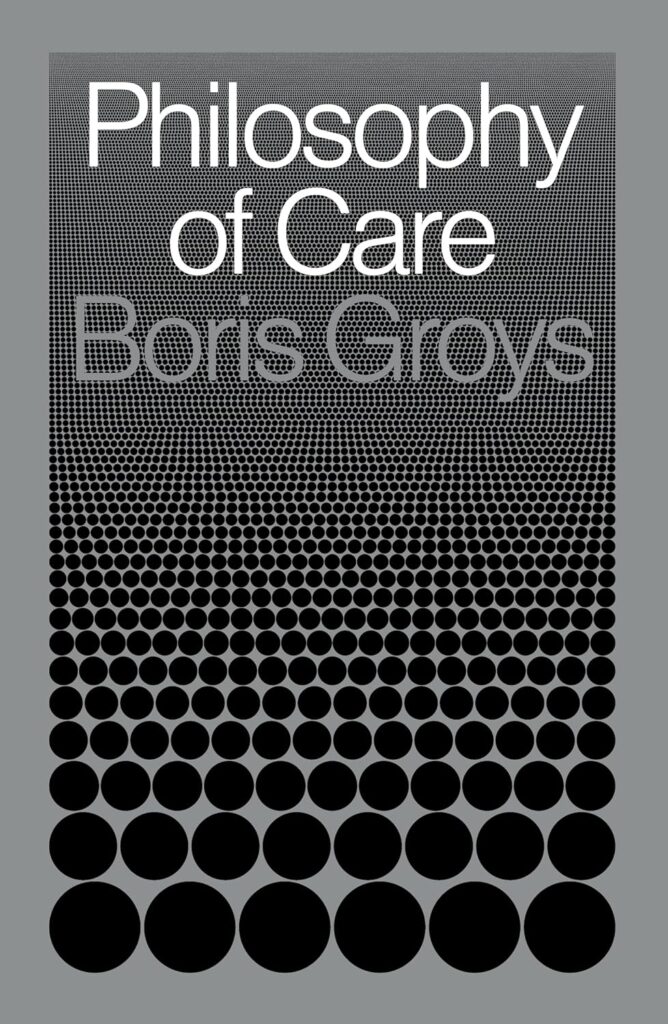
Philosophy of Care (2022) Boris Groys
The book traces the long tradition of care in philosophy beginning with Plato and ending with Alexander Bogdanov through Hegel, Heidegger, Bataille, Kojève and many others. In this text Groys explores the question of care in relation to the physical and the symbolic, the self and the other, value and life, recognition, and recovery. Groys attempts to position the question of care not only within the philosophical tradition but to look at how care and its coercive other, control, operate within our institutions and society more broadly.
The relationship to ‘care as a concept’ starts from the re-evaluation of ‘self-care’ through one’s own subjectivity. Since the Enlightenment this subjectivity is always an arrested subjectivity, relying on a network of social institutions and state apparatus that maintain the care of its citizens. Groys locates care within a form of biopolitics that echoes Foucault’s work. The body for Groys, is split between the material, corporeal body and the symbolic body which is configured and shaped by a host of social structures. Care is considered not only through the pathologies of the body but in our everyday practices and that considers our relationships to institutions of care (medical, governmental, educational etc.) and its commodification through global capital. For Groys, the symbolic body “allow us to inscribe our physical bodies into the system of care.” (Groys, 2022, 6) This has implications though and for Groys the symbolic body becomes a body that is “documented, historically objectified and bureaucratically situated.” (Groys, 2022, 18) Subsequent chapters explore the concept of care through notions of work and labour (Marx and Arendt, sorge (care) as presented in Heidegger’s reflections on the work of art and Bataille’s and Caillois’s work on the vital forces of ritual.
Groys’ text is a useful resource as it analyses the broad philosophical tradition of ‘care’ while noting how care has been instrumentalised and is not exempt form ideological and philosophical mystification. The text usefully attempts to recuperate care as a notion that can resist instrumentalisation. The text provides a useful philosophical history of ‘care’ yet its lack or substantial engagement with feminist literature on the subject is particularly disappointing. The text does end quite abruptly with no overall conclusion presented.
Mick O’Hara
TU Dublin
Groys, Boris. Philosophy of Care. London: Verso Books, 2022.
